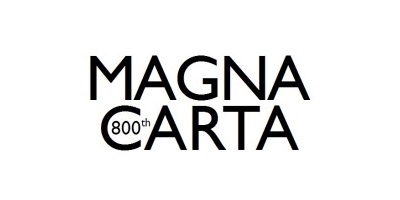- Posted on : June 14, 2015
- Posted by : Tom Fletcher
This week is the 800th anniversary of the Magna Carta, the moment when the barons imposed on the monarch an agreement for greater liberties and rights, a milestone on the way to many of the freedoms we enjoy today.
Of course, the journey didn’t start with the Magna Carta. While we in Britain were in our Game of Thrones phase, Beirut was known as the “mother of laws”. I’ll be blogging on the FCO site on the Magna Carta and the modern Middle East, where plenty of tyrants are still clinging on.
However, these are not just questions about dictatorships. Tim Berners Lee, a Brit who has maybe done more for liberty than any other, argues that we need a new Magna Carta for the internet age. He is right. We need a genuine public debate about our digital rights, tackling tough issues around trust and transparency. We need to find the balance between freedom of expression and the rights of others. We have to ensure that technology is an extension of our humanity and not a replacement for it.
The genie does not go back in to the bottle. We can’t prevent massive change as a result of the technology tsunami, even if we want to. What we can do is to ask the right questions about what it means, and what we want from it – the answers are not just about efficiency, speed and cost. We should also acknowledge the victims. The new Lords must find ways to share the benefits with Jaron Lanier’s “digital serfs”, if they are to avoid their own King John moment. And as Kevin Williamson (Washington Post) puts it: “the new emperors should learn from the old emperors that empires fall.”
On these questions, many activists have dismissed ‘the government’ as some sort of monolithic block on freedom, captured by traditional elites. Fight the system, Wikileaks-style. But governments have long lost anything vaguely resembling a monopoly on information and influence. Secrets are becoming harder to justify and harder to keep. There will always be reactionary pockets of government, and some are dominated by them. But in freer societies, policy making is more fluid, flat, and free. So, just as governments need to get past a paternalistic ‘we know best’ view of society; so do activists need to look again at which parts of government to work with, and yes – trust. Governments will need to show that they have sufficient safeguards in place for the data that they will have to collect. Individuals will need to lead the debate about how we shape the digital services we use rather than simply inhabit them.
This can provide the basis for a serious debate about how society adapts to the internet in a way that preserves maximum liberty and transparency. We can’t just mooch through these questions, or get distracted by photos of cute cats. We need new global standards, ‘Statutes of Liberty’, safeguarding freedom of expression, and setting out parameters of net neutrality.
Of course, tech bling and must have gadgets aside, these arguments on the balance between freedoms and security predate the digital era. Like the Magna Carta barons, we still need to understand where authority begins and ends; what issues fall under the rule of law; and how to balance the rights of individuals and communities.
There are also still tyrants to topple. When I asked FIFA delegates in Zurich why they had lied to democratically elected leaders during the 2018 bidding process, they laughed and asked ‘what do we have to lose?’. I wonder if Sepp Blatter will be blogging on the Magna Carta anniversary. He probably has more immediate worries on his mind.

